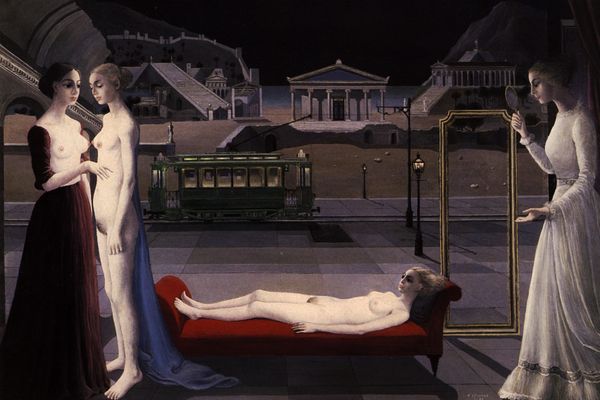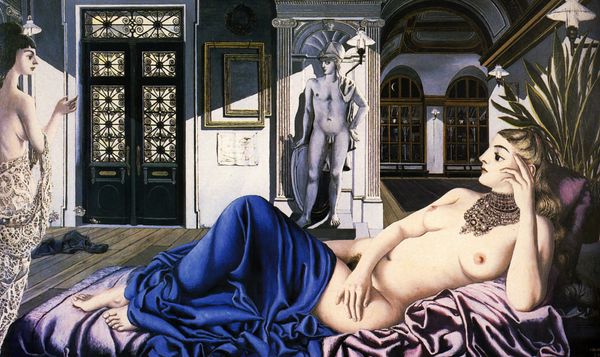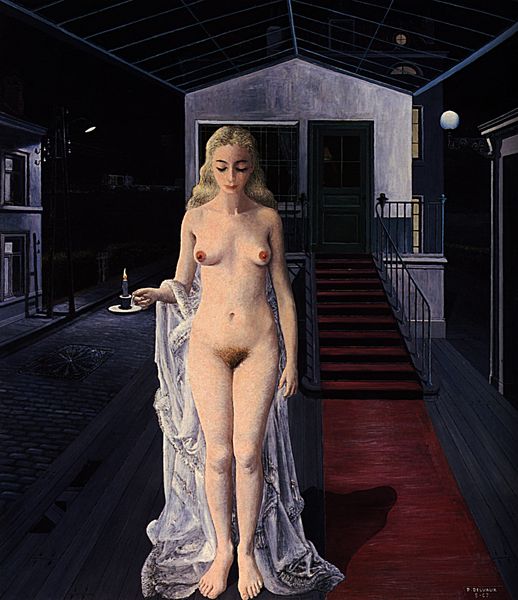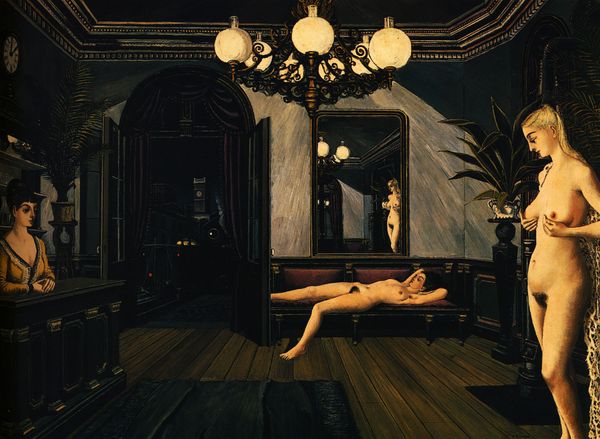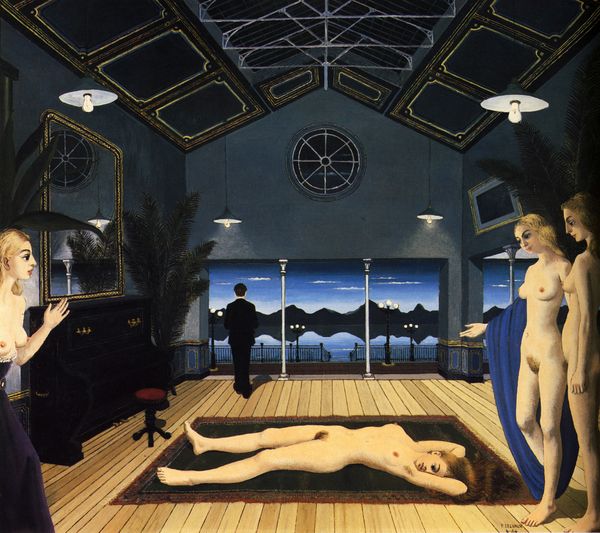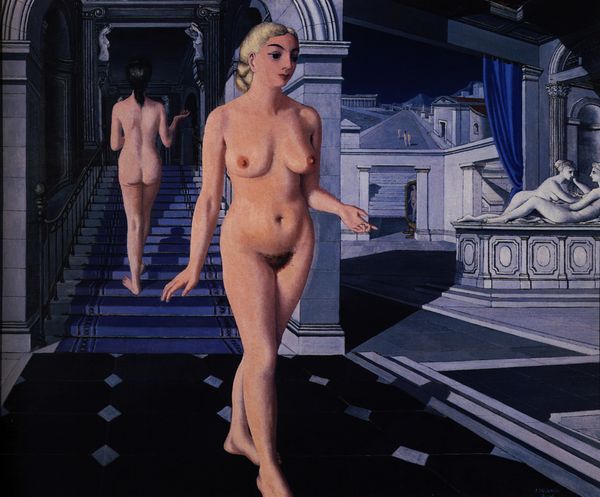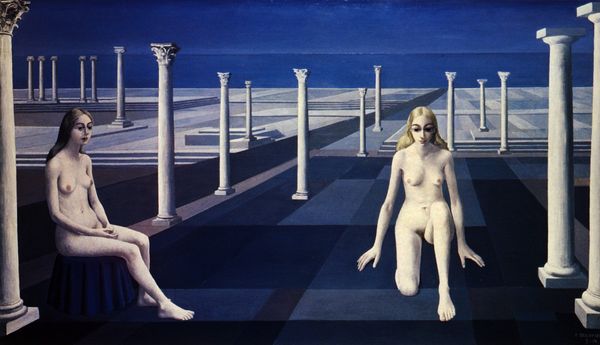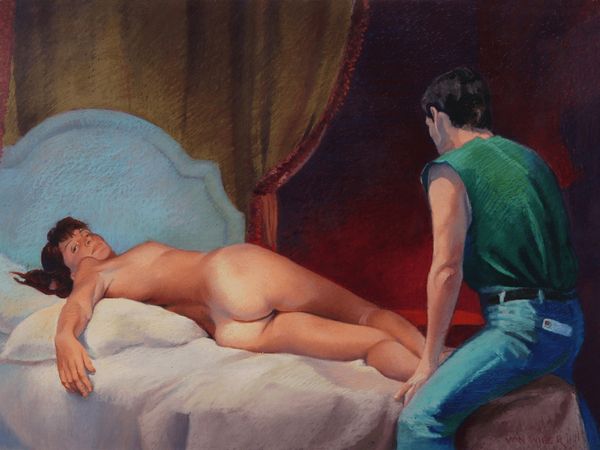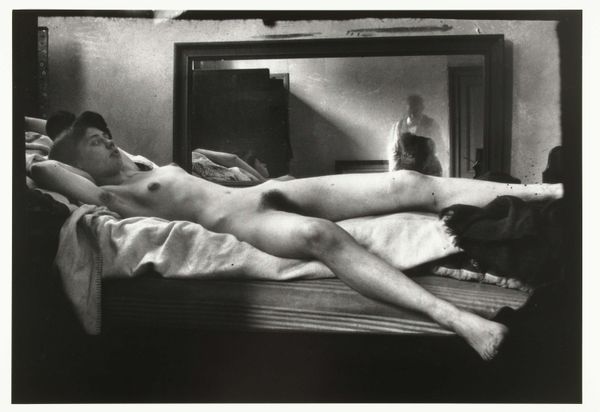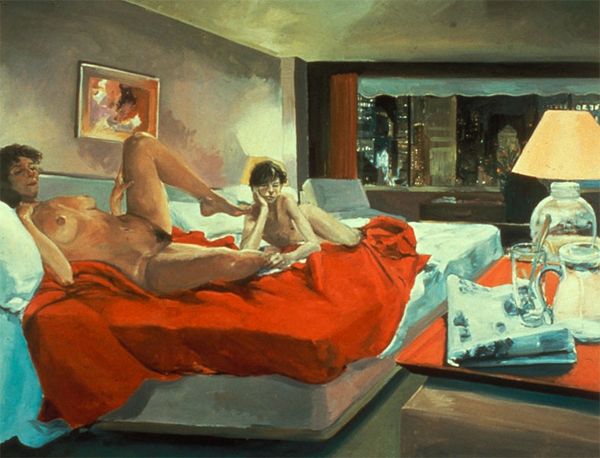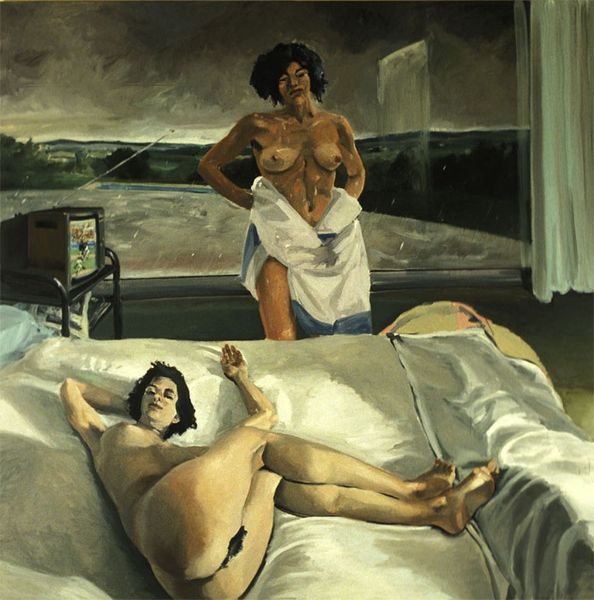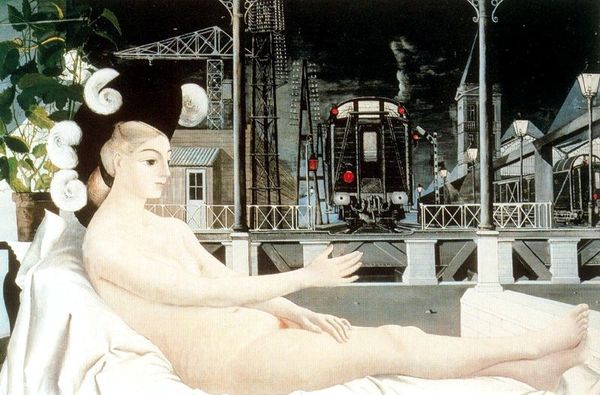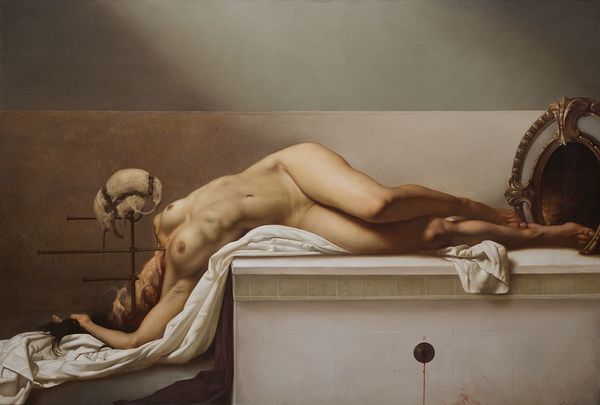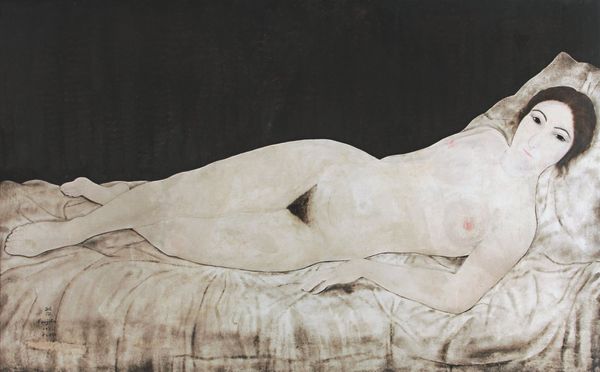
#
cyberpunk
#
futuristic style
#
cosplay
#
graffiti art
#
furniture
#
dystopian style
#
le corbusier
#
female-nude
#
neo expressionist
#
urban art
#
glass architecture house
#
abstract character
Dimensions: 140 x 180 cm
Copyright: Paul Delvaux,Fair Use
Curator: Let’s discuss "The Blue Sofa," painted in 1967 by Paul Delvaux. Editor: It's instantly unsettling. The cool palette, the naked figures… they evoke a clinical atmosphere, almost sterile. Curator: Delvaux was deeply interested in blurring the boundaries between classical training and surrealism, specifically by the processes employed and the subjectivities represented in the picture itself. Consider his material handling: smooth surfaces creating this uncanny, hyperrealistic scene. He also worked to destabilize class; it feels rooted in dreams or even societal anxieties around gender roles and voyeurism. Editor: The candle, and especially the red hooded figure, speak to a timeless archetype—perhaps Little Red Riding Hood stripped of innocence, now part of some arcane ritual, while the sleeping figure, passive on the sofa, could symbolize vulnerability and lost autonomy. The stark geometry behind them gives it this surreal dreamlike composition to heighten the tension even more. The sofa is a modern intrusion upon these established visual metaphors, making it more surreal, perhaps. Curator: That architectural framing behind the figures underscores Delvaux's drafting background. The building, perhaps a house or public construction, speaks to production, and the placement of bodies underscores the dynamic between objectification and utility and use of space in his wider body of works. He uses both formal training in architectural renderings and challenges their original function in his surreal work. Editor: The imagery suggests themes of vulnerability and isolation, almost hinting at a disquieting feminine power dynamic, while referencing pre-industrial methods such as candlemaking. Curator: Precisely. Delvaux blends techniques from architectural rendering with modes of surrealist painting—the industrial precision juxtaposed with organic themes gives the piece its enduring unsettling resonance. The work's construction becomes a lens for its themes. Editor: Yes, seeing those symbolic connections provides a new appreciation of how Delvaux communicates something timeless with disturbing undertones.
Comments
No comments
Be the first to comment and join the conversation on the ultimate creative platform.
